Kenwood 5090
my first lampizator player ever.
Y. 2005.
This is a
fantastic player. Built circa 1998 but with 24 bits already.
Maybe one of the first 24 bit players. The DAC is on separate
additional green PCB next to the stock 4090 model PCB. In fact it has
BOTH PCBs inside. old 4090 20 bit Kenwood's own chip and new 5090
24 bit. - Matsushita National MN35502
This is the list
of other players which have same or similar chip:
YAMAHA
CDX-496 MN35511AL
YAMAHA
CDX-396 MN35511AL
YAMAHA
CDX-390 MN35511
VICTOR XL-V1-N MN35502
JVC
XL-V464 MN35500
JVC
XL-V264 MN35500
The
player has
abundance of free space for transformer and tubes and power supply. So
we
can build the lampizator, even a balanced 4 tube arrangement - all put
neatly inside.
It has
the coolest drawer of all budget players. It has the most legible
display of all players except Mark Levinson.
It comes in two
colours - black and silver. It costs pennies on ebay. And
it has a CD text which is cool.
I recommend it
to newbees.

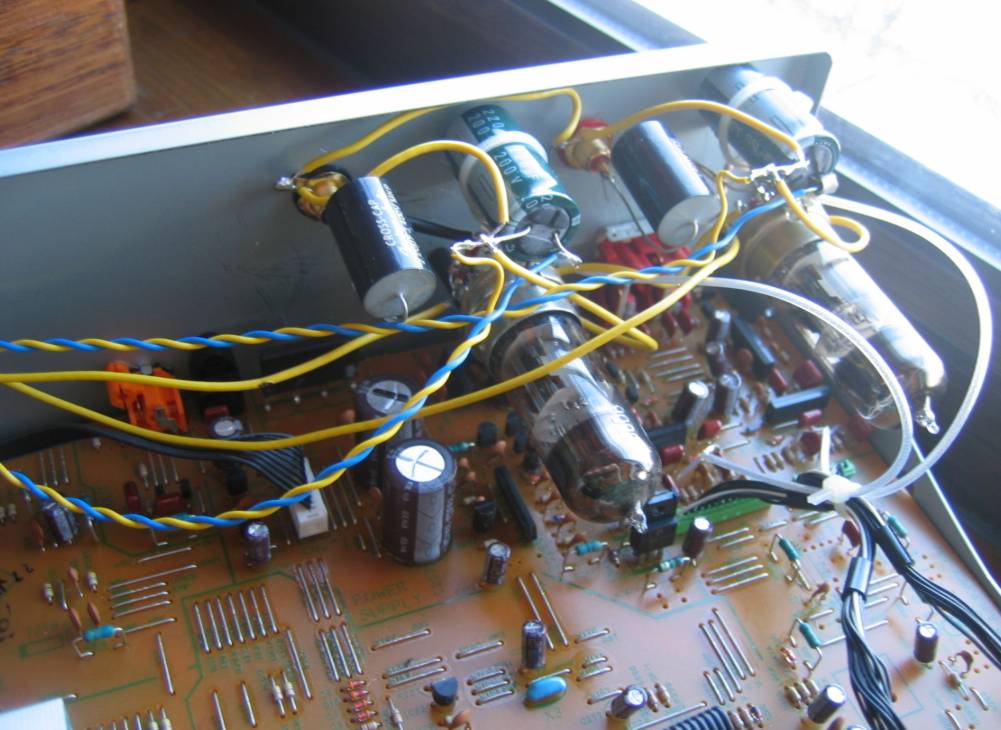
The Lampizator
in this case is a 6H6P type, SRPP config, mounted horizontally just
near the output RCA's
Power supply and transformer are in another corner.
he brown PCB is the original 4090 model, the green is an addition for
making it 5090.

The new
transformer sits in the upper left corner, the huge PIO
capacitor and high voltage section is on the left from the original
yellow trafo.
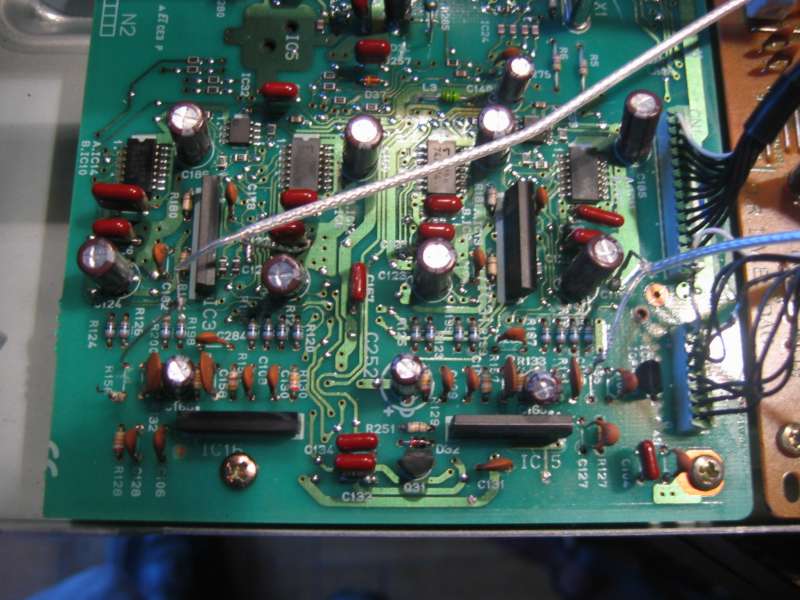
This is the
add-on PCB which has the DAC circuitry. The old brown PCB is having the
second DAC, disconnected but existing and ready to work. Apparently
that was cheaper for them to keep the old board as it is and waste the
20 bit DAC , than making a new PCB.
These silver
wires are Russian military silver antenna cables, screened and teflon
insulated. They pick the DAC signal and take it to the tubes.
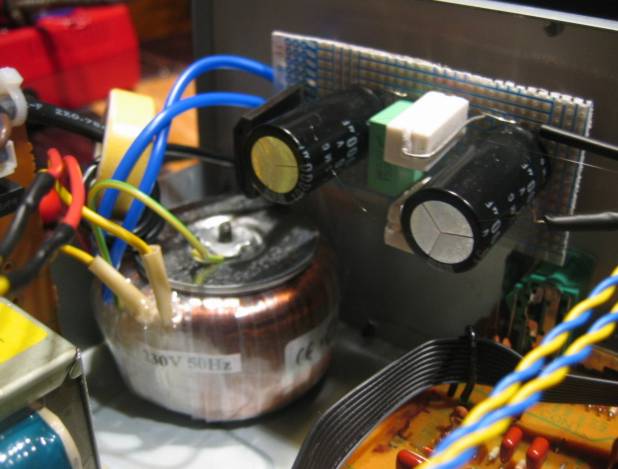
This is the
rectified 12,6 VDC power supply of the tube heaters (in series 2 x 6,3
V)
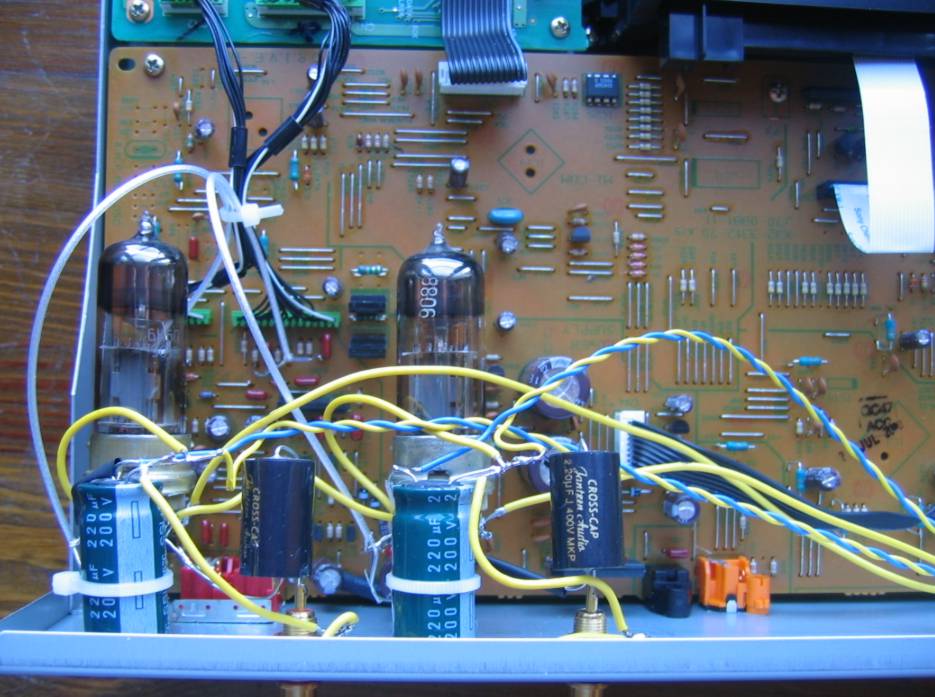
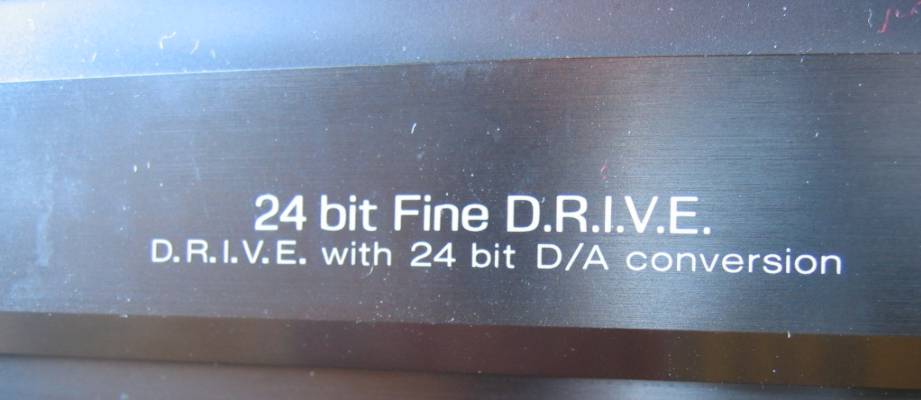
A warning: the
signal straight from the 24 bit DAC chip has a residual high frequency
noise. To remove it we need to add some passive filtering, like a RCR T
shaped network, maybe 1K series, 5nF parallel, 1 K series again. Some
experimentation is needed.
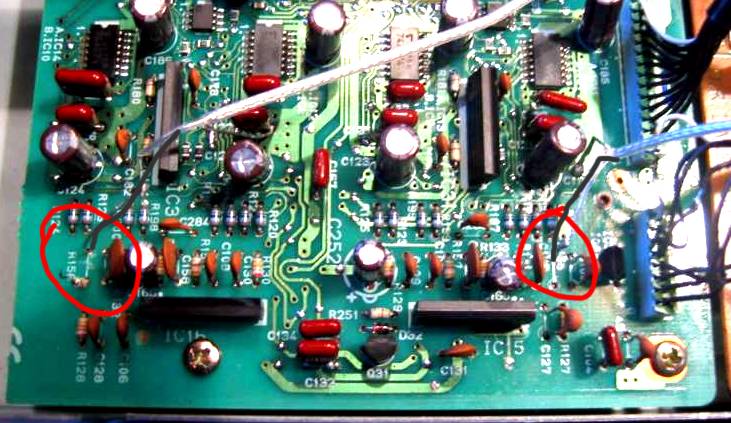
look - my proposed lampization signal stealing points.
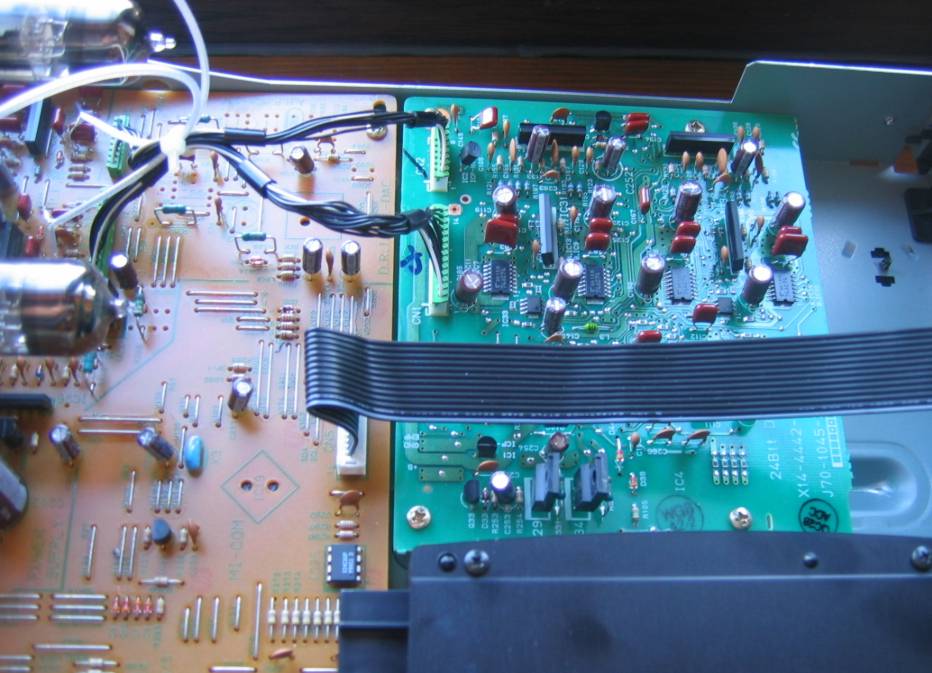
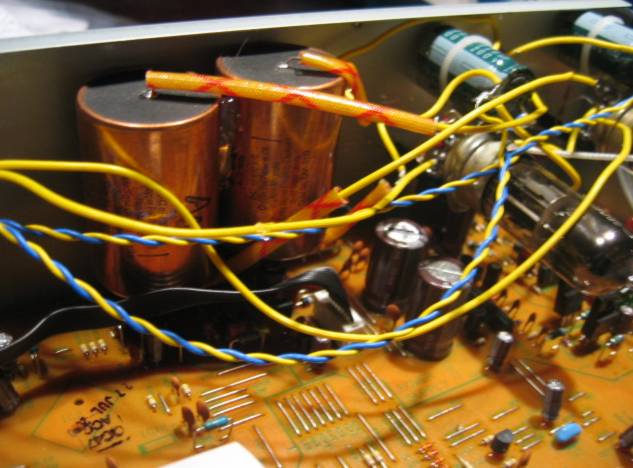
Upgraded caps -
Audionote Copper Foil Paper In Oil - the ULTIMATE decoupling signal
caps.
The DAC is a V out type, so the tube has to be low gain like
6H6P or 6H13C
ZE SOUND
Ze sound of this player is very dynamic, very detailed, it is a
goose-bump generator, it has spectacular depth and width and height.
People who hear it lampized for the first time think they are listening
to Wadia 860 and they are not far from truth.
BACK










